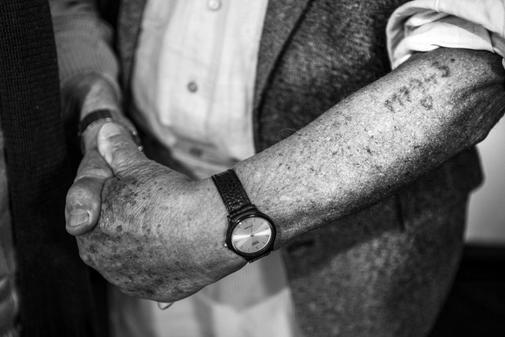- Against time. The deceased Spaniards of Mauthausen
The Central Civil Registry has published this Friday in the Official State Gazette (BOE) the list of the 4,427 Spaniards killed in the Nazi concentration camps in Austria of Mauthausen and Gusen , which depended on the previous one, in order to facilitate the relatives your registration as deceased.
With this measure, the magistrate-judge of the Registry complies with one of the initiatives of the Law of Historical Memory for the reparation of the victims of Nazism , as reported by the Ministry of Justice in a statement.
To prepare this list, the General Directorate of Registries and Notaries has collected the information recorded in the corresponding books that are kept in the headquarters of the Central Civil Registry about Spaniards who died in the aforementioned concentration camps and have been collated with other databases to perform the relevant checks .
The edict contains two web addresses through which family members and other relatives may access the final list and submit the allegations and corrections they deem appropriate. For this they have a period of one month .
This initiative is part of the measures included in the Law of Historical Memory as thanks and reparation to the more than 10,000 Spaniards who were deported to the Nazi concentration camps, deprived of their Spanish nationality by decision of the Franco government, declared stateless and which more than five thousand lost their lives there, says the Ministry in its statement.
The Council of Ministers, at its meeting on April 26, 2019, approved the establishment of May 5 as a day of homage to Spaniards deported and killed in Mauthausen and other camps and to all victims of Nazism in Spain.
The objects of the Spanish prisoners
A wound that you want to start trying to heal with initiatives that give some peace to the families of those who perished in the Nazi concentration camps. For six months and thanks to the efforts of historian Antonio Muñoz , about twenty Spanish families have recovered "a piece of their own history" engraved on the objects that the Nazis snatched from their relatives upon entering the concentration camps to which they went moved more than 10,000 Spaniards .
Last week, for example, Muñoz gave Paquita González , an 86-year-old woman, the last belongings of this stolen memory: several photographs of when she was little in black and white , which her father took with him upon arrival at the Dachau camp (Bavaria, southern Germany) and that they were taken away and filed with a serial number, as explained by the historian.
Muñoz performs this task together with the Arolsen Archives of Kasel (Germany), a documentation center on deportation and crimes of World War II that has more than 30 million documents and information on 17 million people , and that kept 69 objects of Spanish people.
This file, formerly known as International Tracking Service (ITS), was founded by the allies at the end of World War II and since 1948 has returned watches, photographs or letters to relatives of deportees to concentration camps.
With the help of other volunteers, Muñoz has undertaken the search for the objects of the Spanish prisoners , since it ensures that from the Spanish institutions "there has never been interest in participating in a project of this nature".
The historian, who teaches at the Rovira I Virgili University of Tarragona , criticizes that so little work has been done in this field in Spain and that, unlike those in other countries such as France or Great Britain, there is no complete list of deportees and exiles.
In addition, he regrets that "only talk about the Mauthausen camp (Austria) obsessively, when there were 2,500 Spaniards in other concentration camps, such as Neuengamme in Hamburg , which reached more than 500 in 1944".
And it highlights how complicated it is to find the relatives of these people who normally "only have one name and one last name: imagine looking for a person who lived seventy years ago and whose name was José García ."
According to the criteria of The Trust Project
Know more- Spain
SpainThe Civil Guard cancels the word "javaque" from the spelling test
Style and Gastro The Thermomix blog that everyone talks about
Economy The former head of Security of BBVA pays 300,000 euros of bail and avoids the prison for its links with Villarejo

